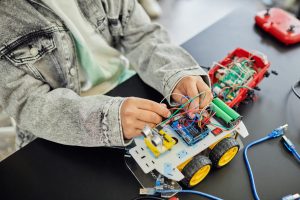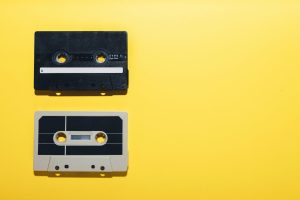How Peer Feedback Enhances Student Independent Learning
In today’s education system, independent learning has become a crucial aspect for students to succeed. The ability to learn independently allows students to take control of their education, learn at their own pace, and develop critical thinking skills. However, independent learning can be a daunting task for many students, and without proper guidance and support, it can lead to frustration and demotivation. This is where peer feedback comes into play. In this article, we will explore the importance of peer feedback in enhancing student independent learning and how it can be implemented effectively.
The Benefits of Peer Feedback
Encourages Active Learning
Peer feedback is a form of active learning where students take an active role in their education by providing feedback to their peers. It encourages them to engage in critical thinking, evaluate their own work and the work of others, and reflect on their learning. This active participation boosts their motivation and helps them develop a deeper understanding of the subject matter.
Fosters a Positive Learning Environment
In a traditional classroom setting, the teacher is the sole authority on providing feedback. However, with peer feedback, students become active participants in the learning process, and the classroom becomes a collaborative learning environment. It allows students to build trust and rapport with their peers, share ideas and perspectives, and learn from each other.
Promotes Constructive Criticism
Through peer feedback, students learn to give and receive constructive criticism. They develop communication skills, learn to articulate their thoughts and ideas, and provide valuable feedback to their peers. This helps students become more self-aware of their strengths and weaknesses and improve their work based on constructive feedback.
Enhances Critical Thinking Skills
Peer feedback not only helps students improve their work, but it also enhances their critical thinking skills. By evaluating their peers’ work and providing feedback, students learn to think critically and analyze information. They learn to ask questions, challenge ideas, and make well-informed decisions, which are essential skills for independent learning.
Effective Implementation of Peer Feedback
Establish Clear Guidelines
For peer feedback to be successful, it is essential to establish clear guidelines and expectations for both the feedback giver and the receiver. This includes specific criteria for providing feedback, such as focusing on strengths and areas for improvement, using appropriate language, and being respectful of others’ work.
Train Students on How to Give and Receive Feedback
Peer feedback may not come naturally to all students. It is crucial to provide training on how to give and receive feedback effectively. This may include teaching students how to use sandwich feedback (positive-negative-positive), using specific examples to support their feedback, and how to accept and implement constructive criticism.
Create a Feedback Structure
Having a structured approach to peer feedback can make it more meaningful and effective. This could include peer reviews, group discussions, or one-on-one feedback sessions. It is also essential to provide enough time for students to give and receive feedback and to follow up on the feedback provided.
Incorporate Peer Feedback into the Grading System
Incorporating peer feedback into the grading system can motivate students to take it seriously. This can be done by assigning grades for the quality of feedback given and received or by factoring it into the final grade for the assignment. This not only incentivizes students to give and receive feedback but also shows the importance of peer feedback in the overall learning process.
Conclusion
Incorporating peer feedback into the learning process can have a significant impact on enhancing student independent learning. Peer feedback encourages active learning, fosters a positive learning environment, promotes constructive criticism, and enhances critical thinking skills. With proper implementation and clear guidelines, peer feedback can become an essential tool for students to take control of their learning and develop into independent learners. So, let’s embrace peer feedback and empower our students to become active, engaged, and independent learners.










